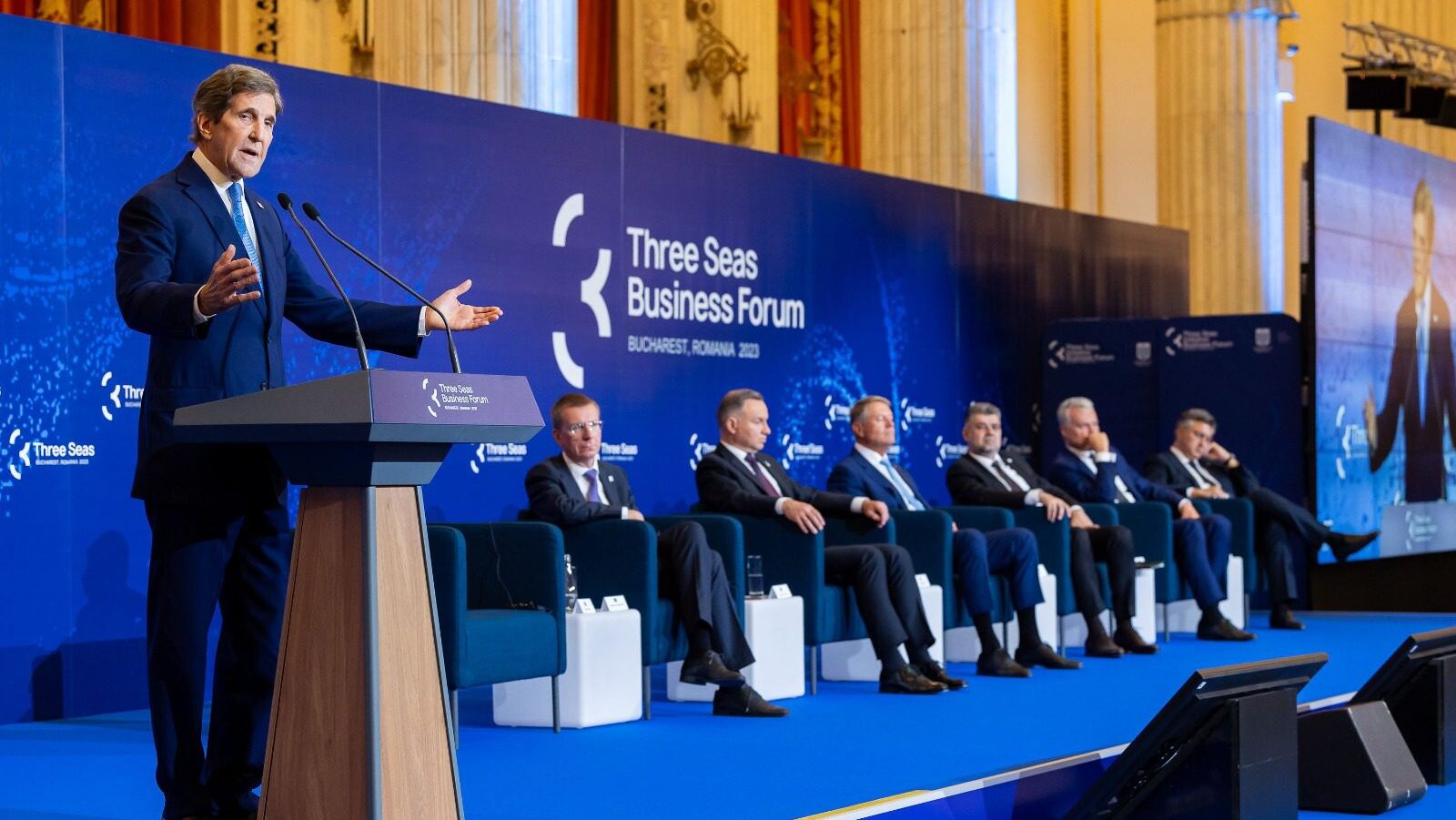
John Kerry
Photo: @ClimateEnvoy on X (Twitter), September 11, 2023.
The Biden administration’s top climate envoy, John Kerry, was in Bucharest last week to negotiate American financial support for new nuclear power technology in Poland and Romania as Washington looks to solidify its influence over Central and Eastern Europe as the region adjusts to a reduction in Russian hydrocarbons.
Kerry was addressing a meeting of the Polish-led Three Seas Initiative, a 13-nation bloc of Central and Eastern European nations billed as a counter to the EU, where he promoted “Project Phoenix,” a U.S. plan to incentivise the construction of small modular reactors (SMR) to combat climate change and improve strategic autonomy.
A type of fission reactor that has come onto the market over the last five years, SMRs are increasingly favoured for their higher safety standards and small size, with both China and Russia embracing the technology.
Romania looks set to be the first European country to embrace SMRs with the announcement of the construction of six U.S.-backed nuclear reactors north of Bucharest, as Kerry disclosed that Czechia, Poland, and Slovakia would also likely pursue SMRs.
The prospective SMRs will be designed by the American GE Hitachi Nuclear Energy company, with additional funding from the U.S. federal government for various nuclear projects potentially coming in April of next year.
Both Poland and Romania have pro-Atlanticist governments, with Warsaw already looking to begin construction on its first nuclear reactor in 2026 in conjunction with the United States before last week’s announcement on embracing SMR technology.
In Romania, thanks to President @KlausIohannis, we strengthened ties with our partners in Central and Eastern Europe at the Three Seas Summit – where we announced progress on what could be Europe’s first small modular nuclear reactor in Romania, replacing an aging coal plant. pic.twitter.com/POazmnJYM2
— Special Presidential Envoy John Kerry (@ClimateEnvoy) September 11, 2023
Not the only American ally in Europe to be moving towards nuclear energy, there are strong signs that Italy could be next in ditching its official anti-nuclear outlook, which it adopted following the Chernobyl disaster, as the Meloni government plans to meet with stakeholders at the end of the month.
The growing acceptance of nuclear power in Europe further isolates Germany, where Berlin’s green-left coalition oversaw the phasing out of its nuclear power plants early this year, fulfilling a long-term ideological vendetta against atomic energy despite the country’s crippling energy crisis.
Reforms to the European energy market resulted in a rhetorical bust-up in the EU Parliament last week as France and Germany battled over whether nuclear energy can be classified as being “green.”
Led by France, 13 out of 27 EU nations currently use nuclear power for energy generation, supplying 26% of all EU energy needs. Many experts predict a new renaissance in nuclear power generation caused by the need to wean the continent off Russian energy supplies.
